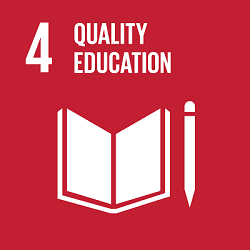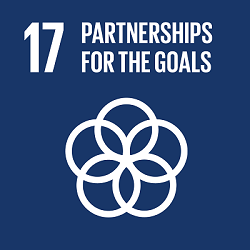Leave noone behind - The 17 Sustainable Development Goals of Agenda 2030
FFU supports a new culture of learning and teaching through Schools@University and implements the Agenda 2030
In September 2015 Heads of State and Government agreed to set the world on a path towards sustainable development through the adoption of the 2030 Agenda for Sustainable Development. This agenda includes 17 Sustainable Development Goals, or SDGs, which set out quantitative objectives across the social, economic, and environmental dimensions of sustainable development — all to be achieved by 2030. The goals provide a framework for shared action “for people, planet and prosperity,” to be implemented by “all countries and all stakeholders, acting in collaborative partnership.
The Environmental Research Institute (FFU) is convinced that the implementation of the SDGs towards a societal transformation can only be successful if there is a new culture of learning and teaching. Education is central to its implementation. This is where Schools@University comes in. Since 2006, we are working successfully to realise these goals. All our programmes and trainings follow SDG 4 (high-quality education) and the guidelines of Education for Sustainable Development (ESD). It is our goal to spread a culture of learning and teaching in the spirit of ESD, to initiate processes of changein schools and to support cooperations between schools, universities and extra-curricular places of learning.
All workshops and trainings follow the idea of giving a competency to create and design. Quality and quantity of content (SDG 4) as well as the diversity of methods and topics that characterise Schools@University are possible thanks to a big network of regional and academic partners. About 45 organisations and companies as well as 90 individual and extra-curricular education partners and cultural institutions form part of this network. Thus, FFU supports SDG 17.


All 17 SDGs are reflected in the workshops and trainings of Schools@University. Our focus lies on Renewable Energies (SDG 7), Sustainable Producation and Consumption (SDG 12) as well as on Climate Change. However, SDGs 4 and 17 are present in all workshops.
In the following, you will find an exemplary project for each of the 17 SDGs to see how Schools@University teaches and implements the different goals.